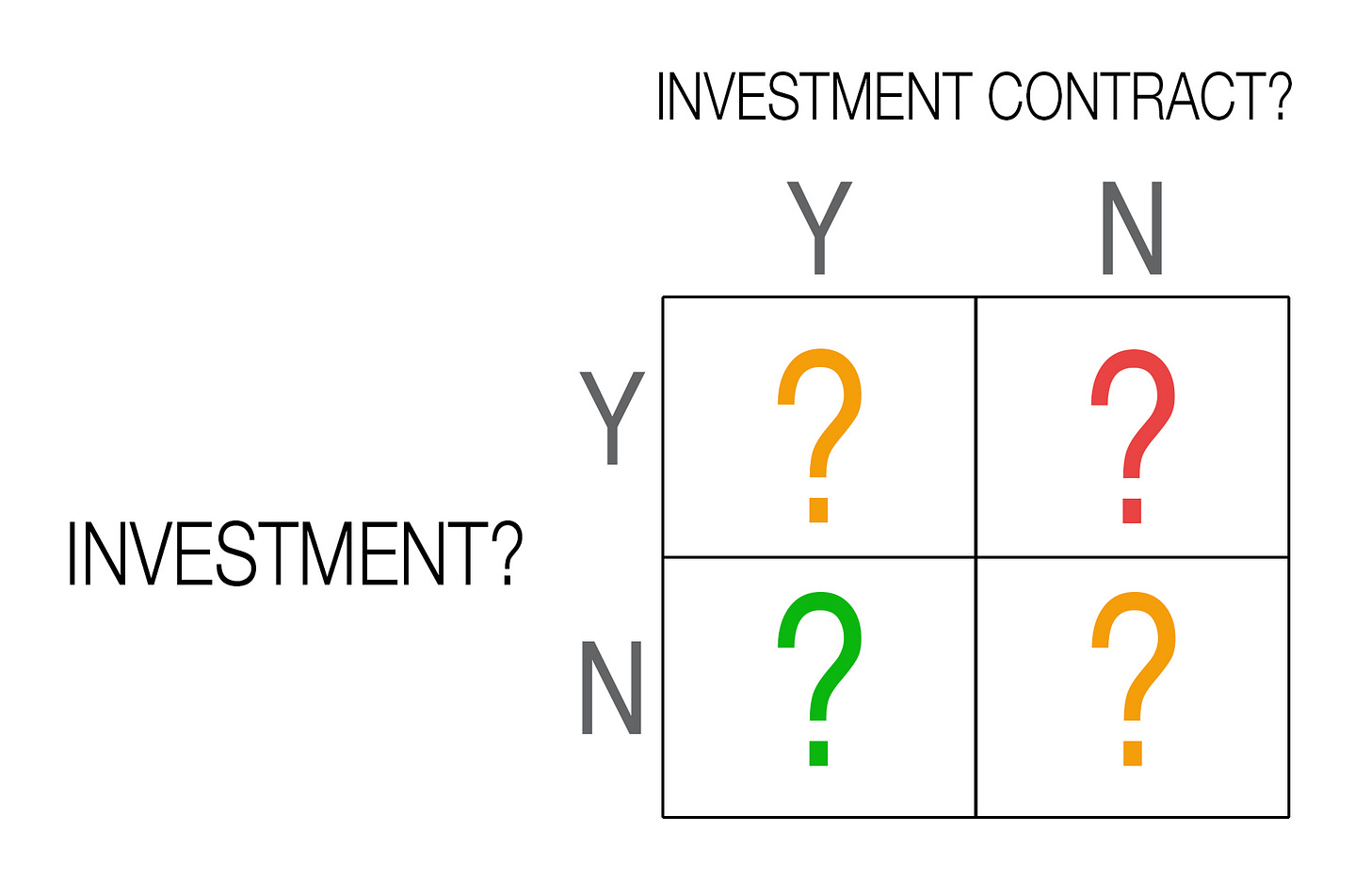Howey Doin?
Part II - The Most Insightful 2x2 Table
Let’s remember the question that matters a great deal:
Is Crypto a Security?
We are not talking about whether or not crypto is a security when wrapped into an ICO-type transaction, which is the primary question in SEC v. Ripple, the saga that started right before Christmas in 2020. We are talking about secondary market transactions, where the buyer goes to an exchange, e.g. Coinbase, and buys their favorite crypto.
Is crypto a security? Because Ripple is in litigation with the SEC, we know some parties’ position on XRP, Ripple’s crypto token. Attorney Deaton says no. We’ll assess his positions in a later post. Attorney Hogan also says no. Jason Calacanis, the angel investor who is leading the angel investing club The Syndicate, says yes, XRP is obviously a security, but then got a mouthful from Brad Garlinghouse, Ripple’s CEO.
What about the SEC? The SEC is unclear on what their official position is, but it appears that the answer is no for Bitcoin, maybe for Ether, and yes for most other cryptos.
It looks like we may not get an opinion from Judge Torres as to whether XRP is a security or not, so the needed clarity may continue to run unabated until the Coinbase litigation, if it materializes. Recall that Coinbase received a Wells notice from the SEC and they responded both in writing (PDF) and through a pair of videos (short version and long version.)
We are big believers that most everything can be visualized. A picture, as they say, is worth a thousand words. Finding the right visual is not always easy and sometimes we feel like there may be an even better visual out there. Regardless, that process helps us crystallize our thoughts.
So what is a good visual that summarizes the crux of the debate? Here is what we came up with:
Note there are two questions presented here:
The Finance Question: Is it an investment?
The Legal Question: Is it an investment contract?
We strongly believe that a proper resolution on the question of whether crypto is a security or not depends on addressing these questions simultaneously.
The question marks? They represent various views that are held by various parties. In the rest of the post, we’ll cover these positions in more detail.




